Dacryopinax Spathularia Growing On The Entry To My Garden Space
Spanish below with different fotos...scroll to see all fotos
Espanol abajo con otras fotos...escrolear para ver todas las fotos
These little beauties are Dacryopinax spathularia and they are edible.
They are fermented in order to extract a glycolipid useful as a preserving ingredient. One preservative made from these fungi is used in many softdrinks.
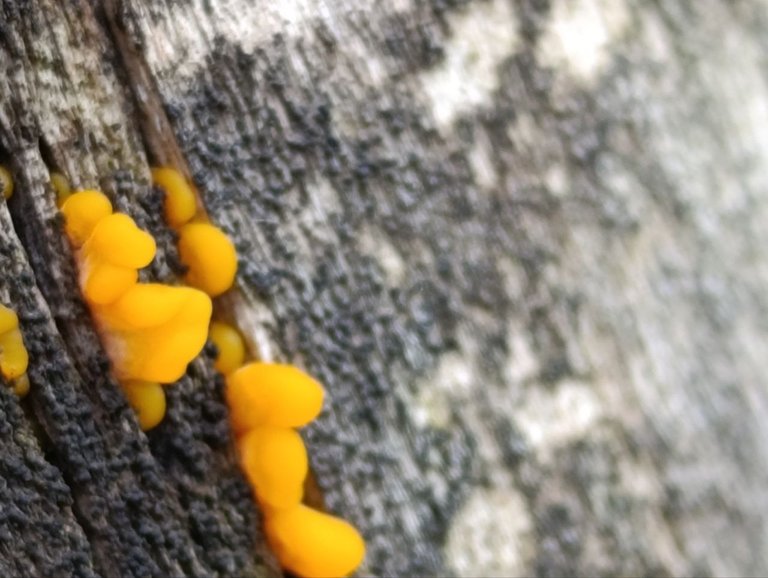
They're also simply cooked and eaten when young and still soft. Some say they have little to no flavor and others say that they are so delicious, they are a delicacy.
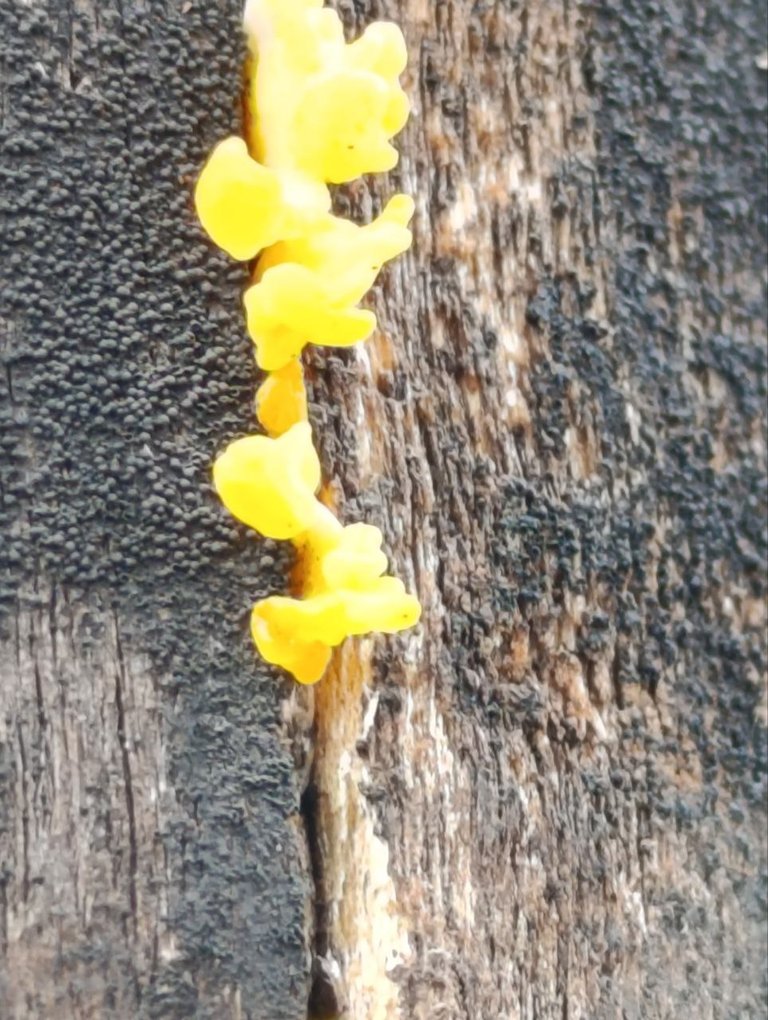
They grow in already dead and decomposing wood, like these fence-posts. They especially prefer conifers and broadleaf trees, although I believe these posts are eucalyptus.
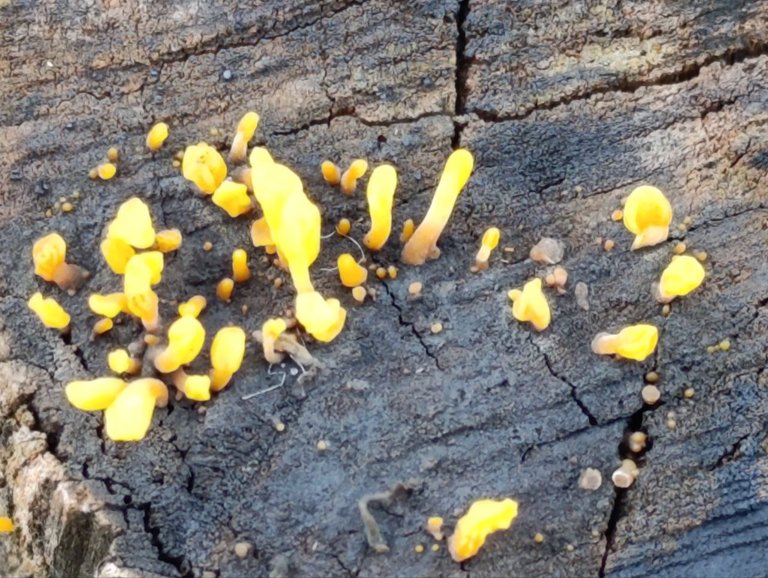
There are 15 different species in the genero Dacryopinax of the Family Darcymycetes. This one is orange due to a high concentration of carotenoids, as carrots contain.
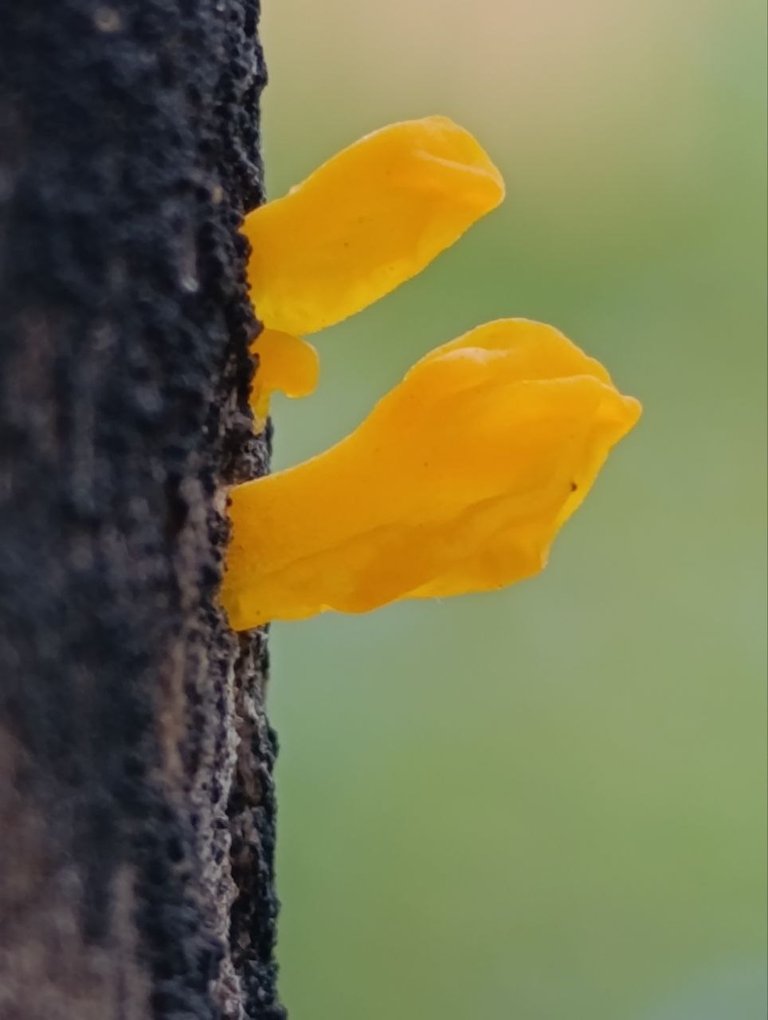
I did my best here, to catch the light passing right through the fruiting bodies because it is so spectacularly pretty how they're nearly transparent when young, having a gelatinous texture. As they age, they become more tough and leathery.
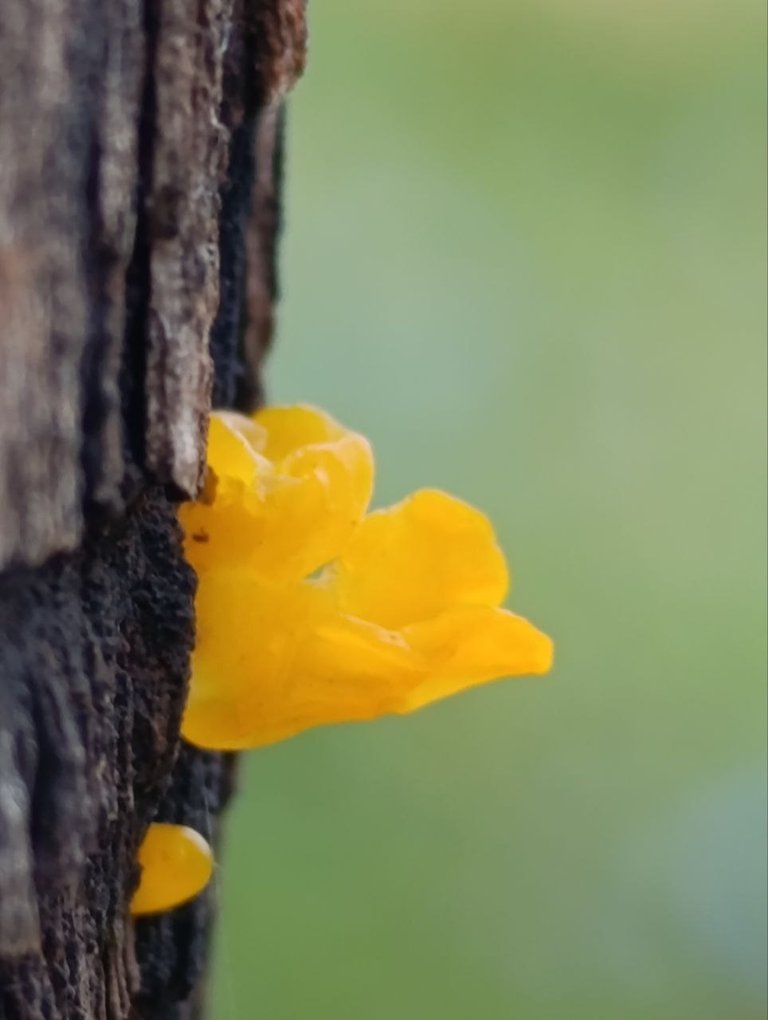
Perhaps the next ones I see, I will harvest for a delicious wokfull Buddha's Delight.
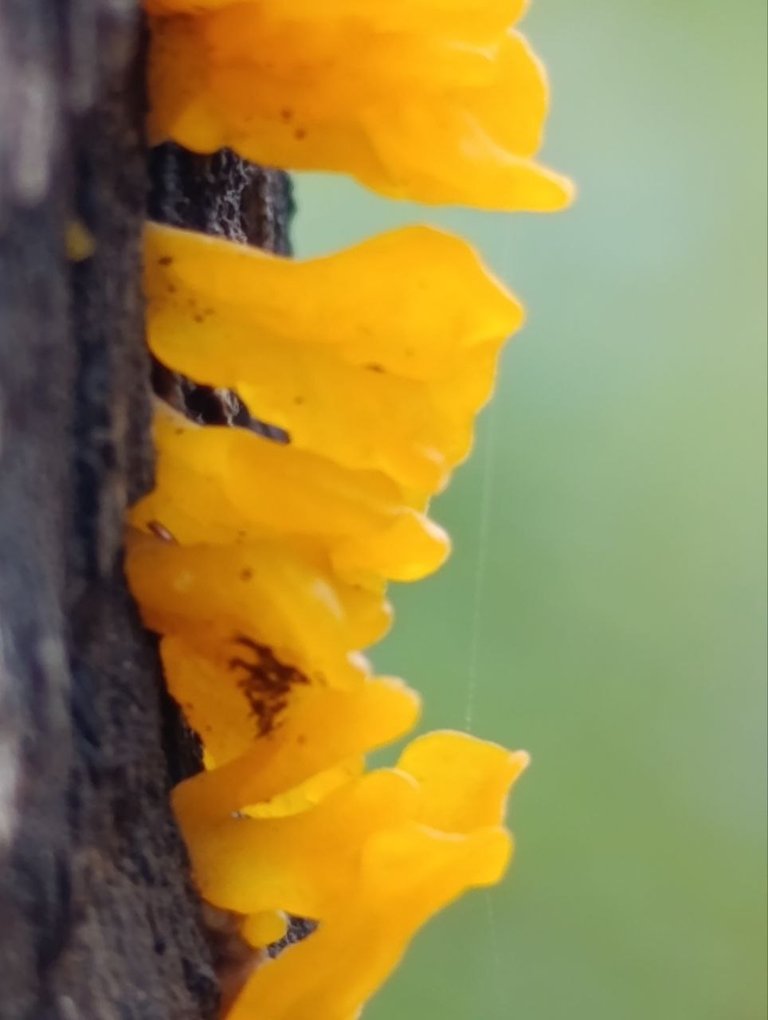 Estas pequeñas bellezas son Dacryopinax spathularia y son comestibles.
Estas pequeñas bellezas son Dacryopinax spathularia y son comestibles.
Se fermentan para extraer un glicolípido útil como conservante. Un conservante elaborado a partir de estos hongos se utiliza en muchos refrescos.
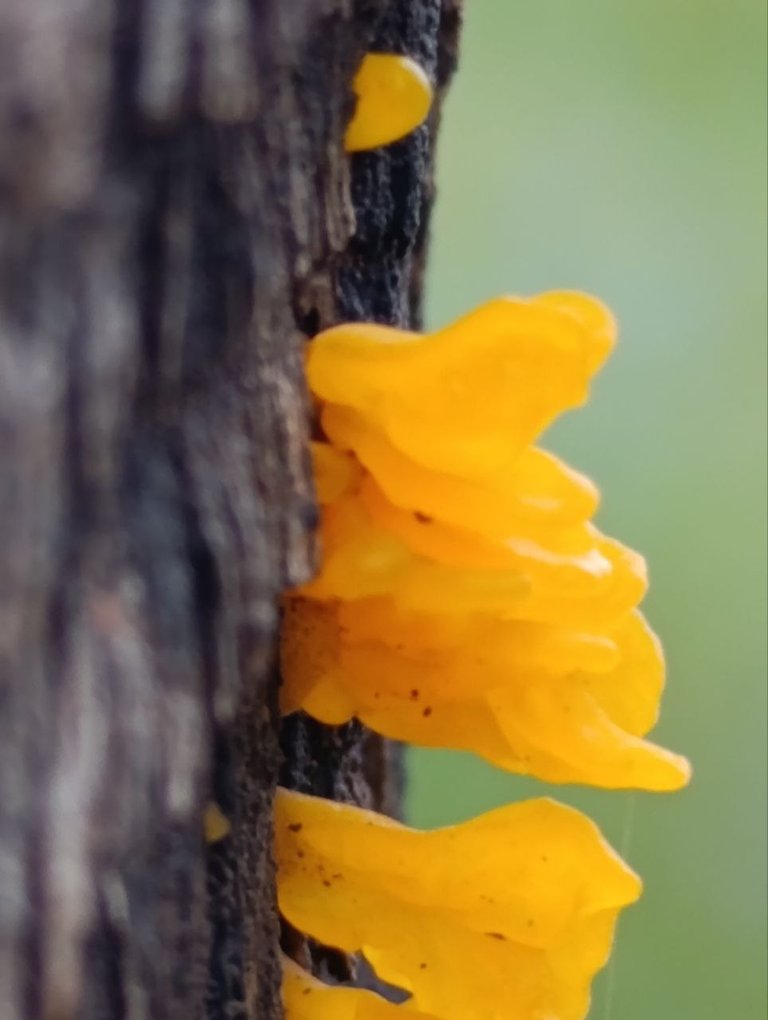 También se cocinan y comen simplemente cuando son jóvenes y aún están blandas. Algunos dicen que tienen poco o ningún sabor y otros que son tan deliciosas que son un manjar.
También se cocinan y comen simplemente cuando son jóvenes y aún están blandas. Algunos dicen que tienen poco o ningún sabor y otros que son tan deliciosas que son un manjar.
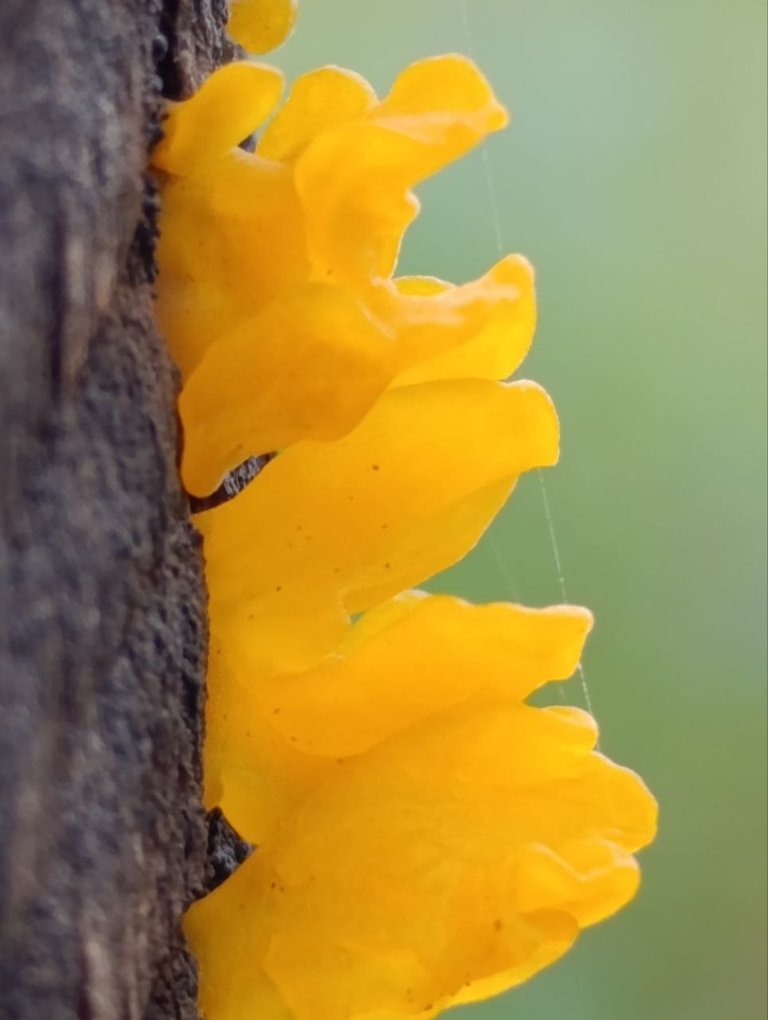 Crecen en madera ya muerta y en descomposición, como estos postes de valla. Prefieren especialmente las coníferas y los árboles de hoja ancha, aunque creo que estos postes son de eucalipto.
Crecen en madera ya muerta y en descomposición, como estos postes de valla. Prefieren especialmente las coníferas y los árboles de hoja ancha, aunque creo que estos postes son de eucalipto.
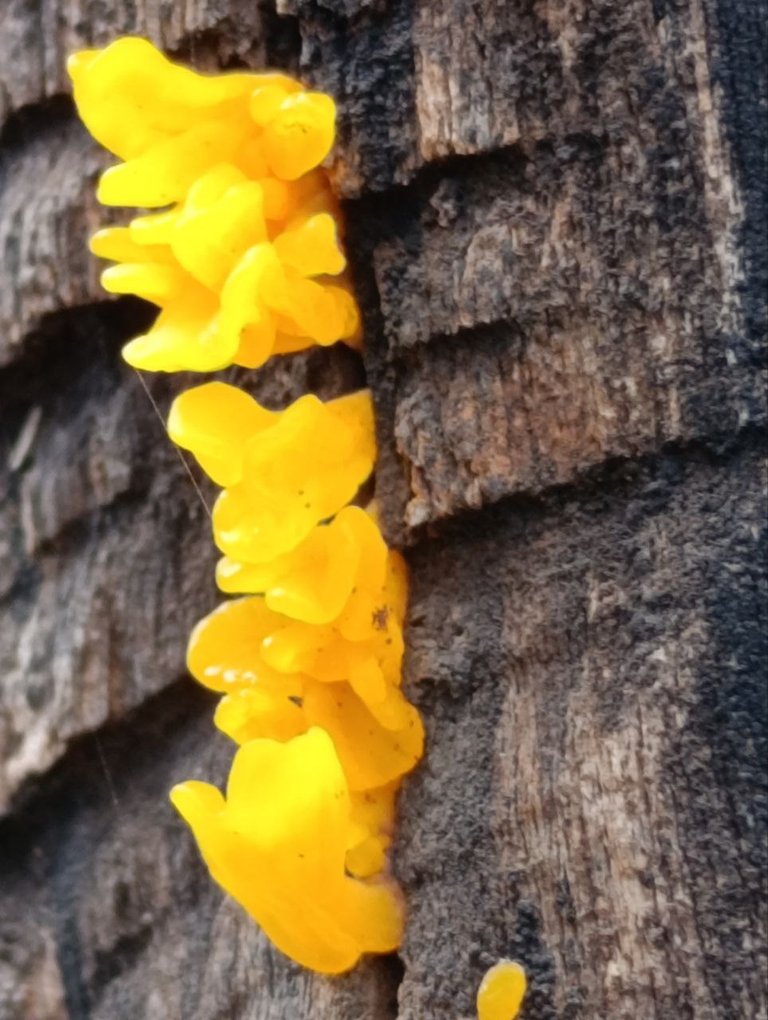
Hay 15 especies diferentes en el género Dacryopinax de la familia Darcymycetes. Esta es de color naranja debido a una alta concentración de carotenoides, como contienen las zanahorias.
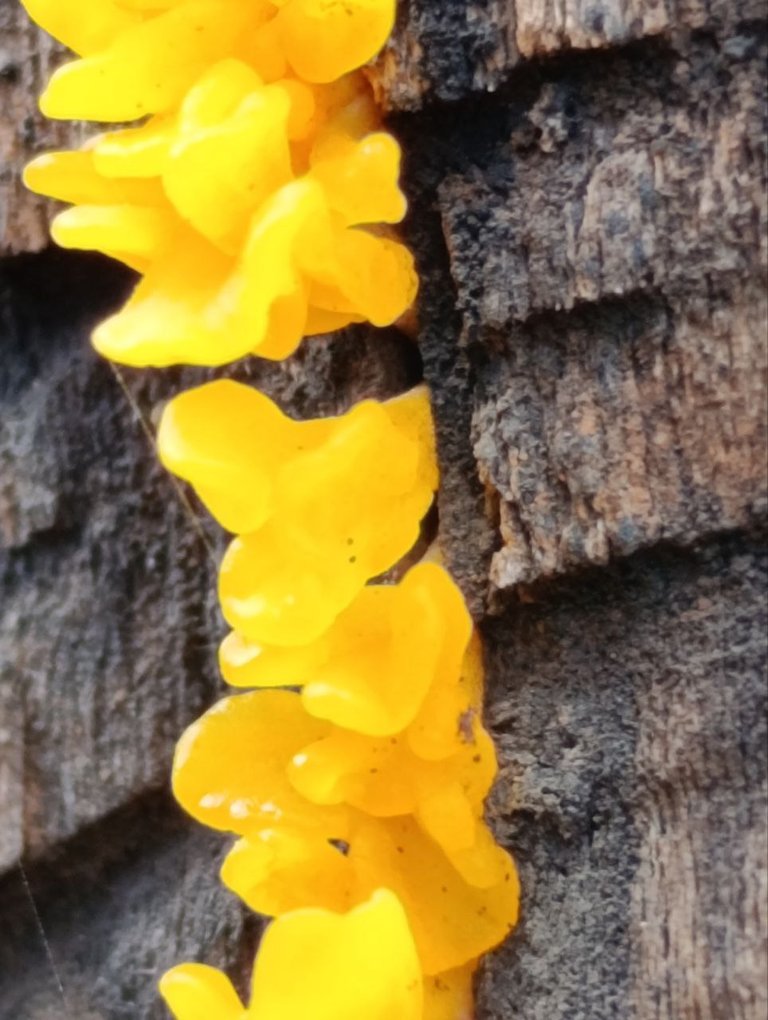
Hice todo lo posible para captar la luz que pasa a través de los cuerpos fructíferos, porque es espectacularmente bonito ver cómo son casi transparentes cuando son jóvenes y tienen una textura gelatinosa. A medida que envejecen, se vuelven más duros y correosos.
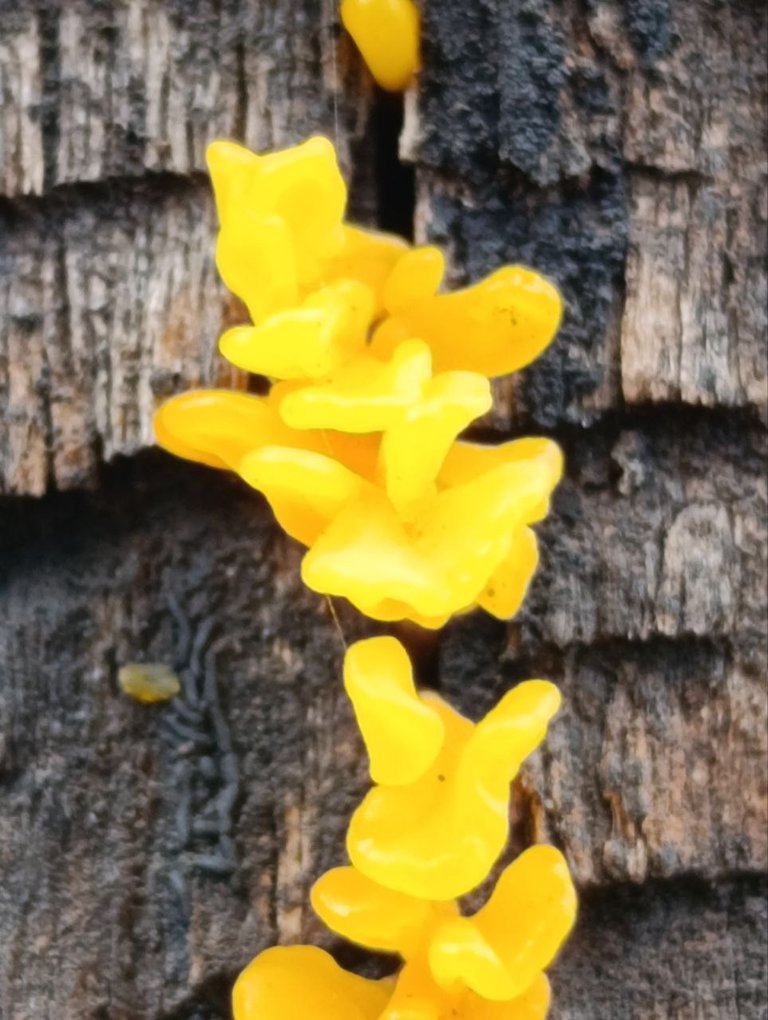
Quizás los próximos que vea, los coseche para un delicioso wok- llena de 'Delicia de Buddha'.
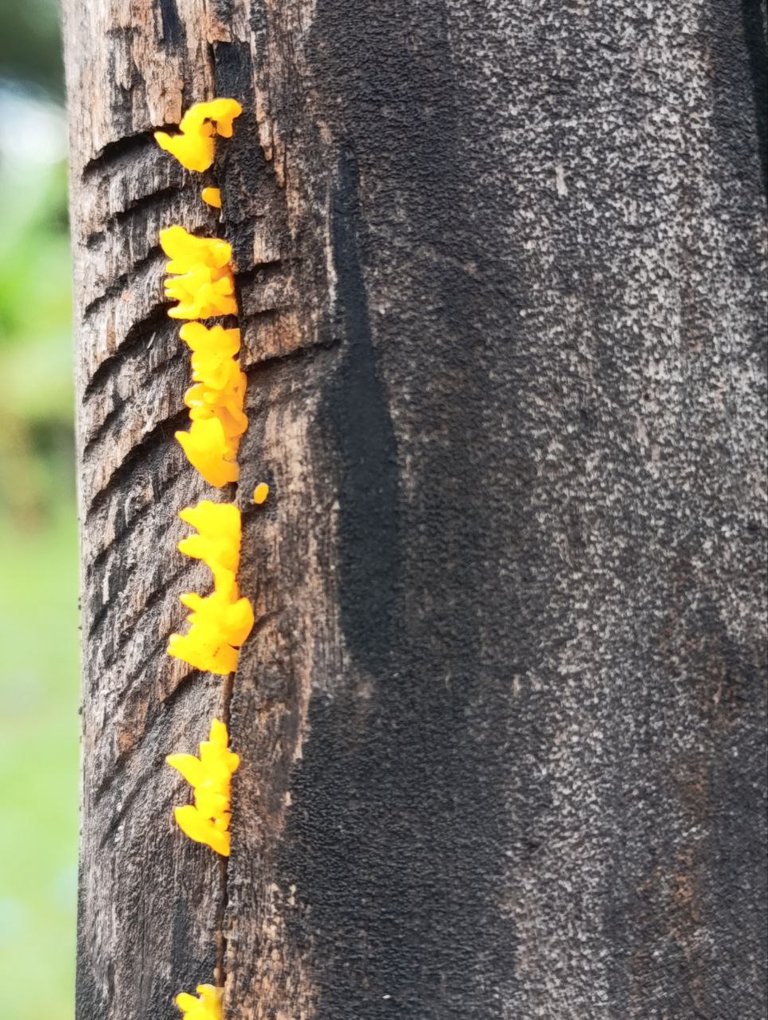
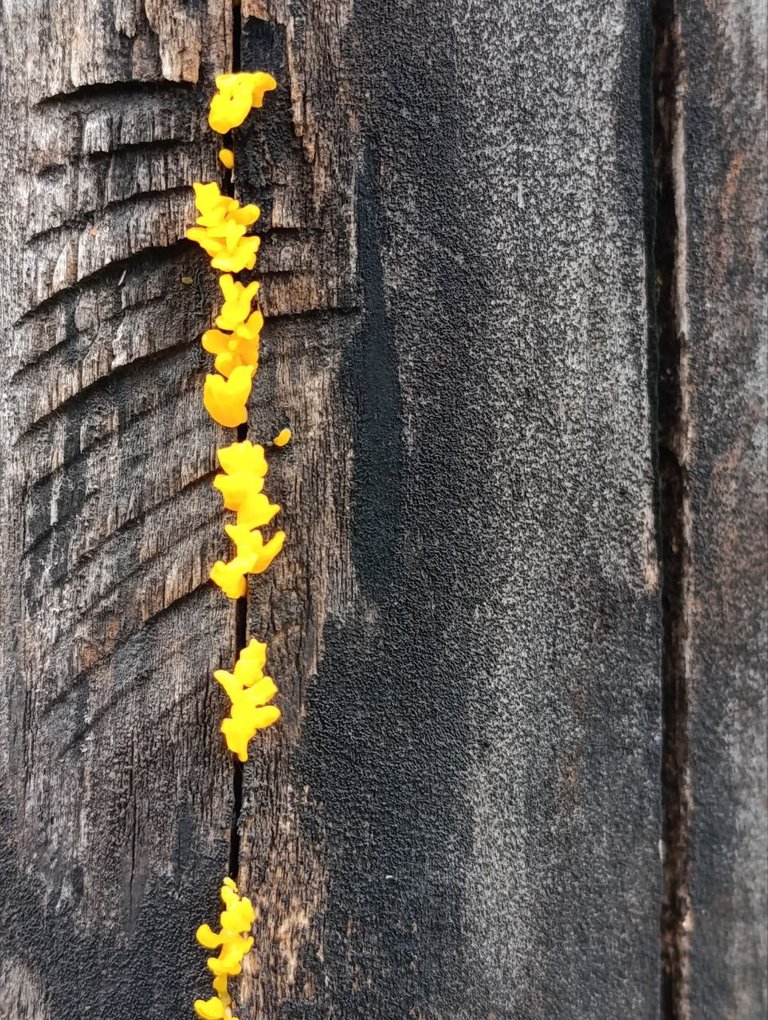
Hugs and kisses. Besos y abrazos.
I make the fotos and write the words that I publish here.
yo hago las fotos y escribo lo que publico aca.
Thanks for being interested.
Gracias para estar interesad@s.
Wow, Dacryopinax spathularia is truly amazing
I love this unique fungus that can be both a delicacy and a source of beneficial ingredients like preservatives.
It is pretty amazing, right? I really want to try some in a stir fry...
Beautiful mushroom, nice
Thanks
You're welcome :)
Hello @melibee, good morning
Jelly mushrooms are really beautiful. It's great that they're edible.
Beautiful photos.
Buendía Linda. It is great.
I really like the beauty of such pictures on trees and I enjoyed another beauty again after seeing your pictures. Thank you for sharing such pictures.
🙏